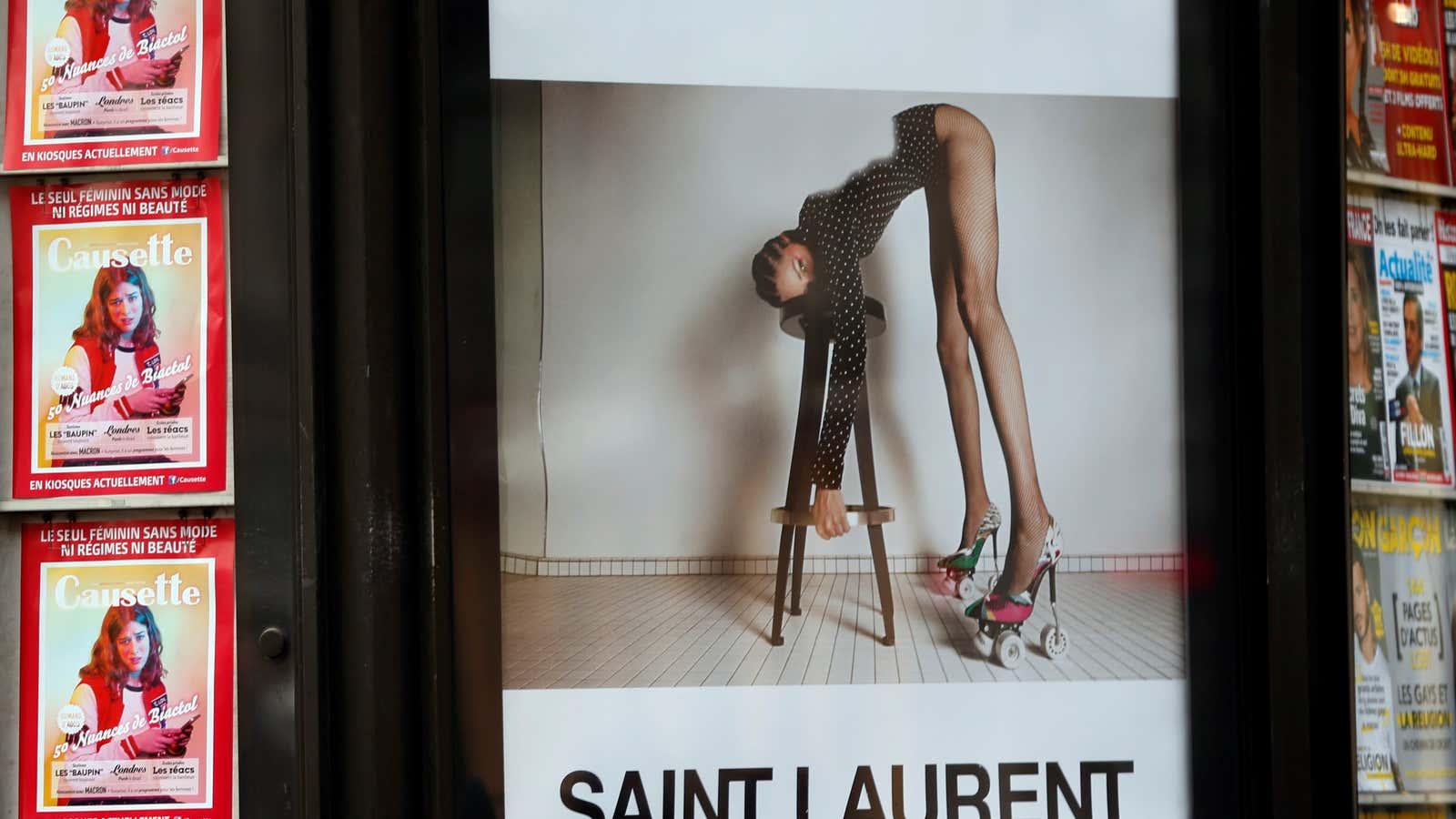As of Oct. 1, ads in France showing a model whose body has been edited to look thinner will have to bear a disclaimer—photographie retouchée—alerting all who come across it that the image has been retouched.
The law, passed in 2015 as France was also banning excessively thin models, treats the unrealistic bodies that populate fashion advertising as a public-health issue. According to Ad Age, the penalty for any company that fails to comply is a fine of €37,500 (about $44,000), or 30% of the ad’s cost to make—whichever is greater.
Exposing young people to “normative and unrealistic images of bodies leads to a sense of self-depreciation and poor self-esteem that can impact health-related behaviour,” Marisol Touraine, the former health minister who introduced the bill, said when it was passed. She hoped the bill would limit promotion of inaccessible beauty ideals, prevent eating disorders in young people, and protect the health of models, who are particularly at risk. (French luxury conglomerates LVMH and Kering also recently signed a joint charter that treats models as workers in a physically risky job.)
It’s not yet clear whether brands will choose to run unaltered images, or stick to business as usual and add the disclaimer. Already, US-based Getty Images has amended its requirements for photographers, banning them from submitting any content with models whose body shapes they’ve changed (though altering hair color, nose shape, or skin blemishes is still okay). The exact parameters of the new law also remain a bit murky for international companies with campaigns in France.
“It’s not 100 percent clear whether it applies to global ad campaigns from outside France that are visible within France,” Geraint Lloyd-Taylor, legal director at Lewis Silkin, a London law firm that works with media clients, told Ad Age. “The safest course is to assume that the law will apply, particularly if the campaign uses French language, French contact details or euro pricing.”
But the biggest open question is whether the law will actually be effective. “It’s simplistic to suggest that looking at Photoshopped images will cause eating disorders,” Tom Quinn, external affairs director of Beat, a UK charity supporting people affected by eating disorders, told the BBC. But, he added, “We support any measures that contribute to a society having a healthier view of body types and everyone being more aware of which pictures have been touched up.”
